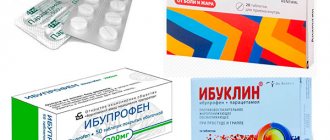How to recognize the flu
As a rule, influenza is characterized by sudden development and the absence of prodromal symptoms. In the first days after infection, there is no runny nose or nasal congestion.
The development of the pathogen occurs rapidly, so the incubation period is short, often not exceeding 2 days.
Obvious symptoms of pathology are:
- Severe fever, temperature reaches 38 C or more.
- Alternating fever with chills.
- Headache.
- Pain in the eyes, fear of bright light.
- Aches in joints and muscles.
In addition to signs of intoxication, influenza is accompanied by an intense dry cough innervating the chest area.
Influenza is more dangerous when complications develop on the respiratory system. This manifests itself in increased coughing and shortness of breath. In severe cases, the respiratory rate increases to 30 or more, respiratory failure and acrocyanosis occur. In this case, you must urgently call a doctor. It is acute pneumonia and respiratory dysfunction that are the main causes of death with influenza.
Antibiotics for influenza
Antibacterial agents do not have a therapeutic effect against influenza. Their pharmacological action is determined by their effect on pathogenic bacteria. In this case, they may cause more harm than good. By destroying the microflora in the intestines, medications reduce the body's protective functions, making it more vulnerable to viruses.
Antiviral drugs are used to combat the influenza pathogen. They have a wide range of effects, suppressing the development of various viral infections. Their use is indicated not only for treatment, but also for the prevention of influenza. However, their use without the prescription of a specialist is contraindicated in order to eliminate negative consequences.
Post-antibiotic era
Even if everyone stopped taking antibiotics at the same time, only in cases of urgent need (which is most likely impossible), this will only delay the inevitable. All available antibacterial drugs will sooner or later lose their effectiveness. It is no one’s fault that bacteria began to evolve - this is a law of life that is the same for all life on the planet.
Man can only delay this process of evolution, but cannot completely prevent it. Today, while many are trying to fight their illnesses with antibiotics, many patients are dying from drug-resistant tuberculosis, typhoid fever and pneumonia.
But not everything is as bad as it seems. A study was conducted regarding what could replace antibiotics. The choice settled on bacteriophages. These are special viruses that can kill bacteria. It can also be bacteriocins - microbes that kill their own kind. Hope rests on proteins - antimicrobial peptides.
Also, do not forget about improving the protective properties of the human body. Man, unlike microbes, has intelligence and knowledge of science. A person must prove stronger than bacteria, it just takes time.
When to take antibiotics
It is advisable to start taking antibiotics for mixed infections, when other pathogens are added to the flu. This occurs with complications such as bronchitis, pneumonia, laryngitis.
Then the patient is prescribed additional medical examinations to determine the sensitivity of the pathogen to the antibiotic. In this case, Amoxicillin, Augmentin, Ceftriaxone, Amoxiclav may be prescribed.
Prolonged high temperature is also a clear sign of a complicated course of influenza and requires the use of antibacterial agents.
To treat a viral infection, depending on the severity of the disease, drugs are prescribed both orally and by injection.
Should I give antibiotics to my child right away?
Antibiotics, of course, are a panacea. But is it worth giving them to a child right away when the child starts to get sick?! Of course not.
There are viruses, there are bacteria. The majority of all children's runny noses, fevers and ailments are caused by viruses - an acute respiratory viral infection. Viruses cannot be treated with antibiotics; antibiotics only act on bacteria.
To give or not to give antibiotics to a baby is a question that worries all mothers, and therefore they can be divided into 2 groups (according to their attitude towards antibacterial drugs):
The first group blindly supports the erroneous belief that any childhood disease can be cured without the help of antibiotics. For them, these drugs act as a kind of monster that devours the baby’s immunity and gastrointestinal tract. Very often, such young ladies, having heard the word “antibiotic”, begin to be horrified and surprised: “How is that possible? For what? You don’t need this!” After this, be prepared to listen to a lecture about the dangers of antibiotics for children and a stream of advice on how to treat toddlers without resorting to these drugs.
The second group of mothers are ardent adherents of antibiotic therapy who are ready to treat a common runny nose with strong antibiotics. They argue their position by the fact that only these drugs help their children recover quickly.
We would like to draw your attention to the fact that the positions described above are fundamentally erroneous and you should not go to such extremes. Everywhere you need to adhere to common sense.
Antibiotic treatment is indicated only for proven bacterial infection and has its own prescription rules. If your baby's temperature rises, it is necessary to examine the doctor to determine the cause of the high temperature. If the cause is viral changes in the pharynx or respiratory tract, then antibacterial treatment, as a rule, is not required, even if the child has a high fever. And then cooperation between the mother and the doctor is necessary to dynamically monitor the course of the disease. After 3-4 days of acute respiratory viral infection, the fever subsides and antibiotics are not required.
The effect of antibiotics on a child's body is very multifaceted, but there are situations when it is impossible to do without these drugs. Only a doctor should prescribe antibiotics. Don't self-medicate! Due to the unjustified use of these drugs, bacteria become resistant to antibiotics, which in the future significantly complicates the treatment of diseases caused by them.
By strictly following the rules for taking antibiotics, you can quickly cope with the disease, while the damage to your overall health will be minimal.
On the contrary, uncontrolled use of drugs is dangerous, so having an idea of the benefits and harms of antibacterial substances is especially important. For “antibiotic therapy lovers,” it must be emphasized once again that antibiotics do not affect viruses and do not help lower body temperature, so self-medicating and taking them “to prevent possible complications” is absolutely not worth it. The article was written by pediatrician Tatyana Anatolyevna Savich. You can make an appointment with leading specialists at the Dixion clinic by calling ☎ 76-00-00, 47-00-00.
Antibiotics for complications of influenza
Depending on the severity and type of complications, the use of the following antibacterial groups of drugs is recommended for influenza:
- Penicillins are used to treat consequences in the form of otorhinolaryngological diseases, damage to the lower and upper respiratory tract.
- Fluoroquinolones are effective in the development of symptoms of pharyngitis, sinusitis, otitis, and sinusitis. Representatives of Oflosaccin, Ciprofloxacin and others.
- Cephalosporins are prescribed for prolonged and acute flu, when the risk of complications is high.
- Levomycetin agents have a wide spectrum of action. This group of drugs has a strong therapeutic effect, so it is used strictly for its intended purpose. Self-medication can cause negative consequences.
- Macrolides are indicated when upper respiratory tract infections are associated with influenza.
- Anti-tuberculosis antibiotics - the pharmacological activity of the group is aimed at combating the causative agent of tuberculosis and preventing complications.
- Aminoglycosides are effective for severe influenza infection. Help prevent infection of the bloodstream and peritonitis. They have pronounced toxicity and are used strictly as indicated.
- Antifungal drugs - used in case of fungal pathology.
- Actinomycetes - the main indication for use is a neoplasm in the patient.
Features of the use of antibiotics for influenza
There are some features of taking antibacterial drugs for the flu, these are:
- The medicine must be taken strictly as prescribed, observing the permissible dosage and duration of the course.
- You cannot stop taking the drug on your own to avoid the disease becoming chronic.
- The prescription of an antibiotic for influenza pathology must be fully justified by the doctor.
- In parallel with antibiotic therapy, it is recommended to use probiotics. This is necessary to maintain normal microflora.
- During treatment, you should drink more fluids and eat dairy products.
- The patient's diet must be balanced. It is important to take additional vitamin complexes and follow preventive measures when infections develop.
Don't repeat at home
An antibiotic is a powerful medicine and should always be prescribed by a doctor. For more than two decades, many pharmacies, in an effort to increase revenue, freely sold prescription drugs, except for narcotic and psychotropic drugs. This led to the fact that many doctors forgot how to fill out prescription forms, writing prescriptions on pieces of paper without even stamping them. And patients bought antibacterial, also known as antimicrobial, drugs for self-medication. Control has only tightened in the last two years.
“Even before I started working at the Fantasy Children’s Clinic,” says pediatrician Victoria Alipova, “a child was brought to the appointment who complained of abdominal pain and bowel movements. The medical history showed that the boy had been treated with antibiotics 12 times over the past year for every cold, including ARVI, when such medications are useless. For the first time, the doctor prescribed an antibiotic, and then the child’s mother acted by analogy. It was enough to stop the drug, and the problem with the intestines would normalize. Children can take antimicrobials in the form of syrups or suspensions even from birth, but only according to indications determined by the doctor. Many doctors prescribe such medications for any reason.”
Antibiotics have many side effects. First of all, they destroy the intestinal microflora: diarrhea, vomiting, possible colitis, liver and kidney dysfunction, and allergies. In such cases, probiotics or other drugs that normalize the functions of the gastrointestinal tract are often prescribed in parallel. However, urologist Rinaz Kamaletdinov says that the clinical recommendations do not indicate that such drugs can stabilize the intestinal microflora against the background of antibacterial therapy. And in each case of illness, only a specialist can make a decision on the type of therapy:
“Treatment with antibiotics should be carried out by a doctor,” Dr. Kamaletdinov is sure. - Even if similar symptoms reappear, you should not take the pills left over from your previous illness. You can consult a doctor online or by phone. In urology, different types of antibiotics are used, most often fluoroquinolones, especially levofloxacin. It is often necessary to change the pharmacological group, dose, duration and schedule of administration. For example, a patient with bacterial prostatitis caused by Escherichia coli was given one type of antibiotic. Treatment requires 28 days, but symptoms returned in the 3rd week. It turned out that a second infection appeared in the body, and E. coli developed resistance to the drug. I had to additionally prescribe a drug of a different spectrum.”







